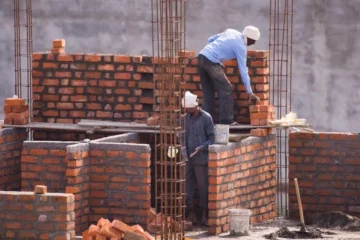
All one needed to be in the real estate sector was political connect and muscle power. Money and skill sets were least of the concerns for an entrepreneur. Skill sets were available off the shelf or as in most cases outsourced to a developer who would design and erect the property. As for money, these entrepreneur announced pre-launch bookings and collected it from their customers. Many smaller companies used to even part-finance their land purchases from these funds. However, the more ambitious builders would use a portion of the money to buy land for the next project. While the going was good, these builders prospered. Supply of money from new customers ensured the entrepreneur kept launching new projects unfazed. A slowdown, however, would put a stop to the money supply, in turn having a cascading impact on other projects, bringing business to a grinding halt. Many unfinished real estate projects lining Indian skylines across many cities and towns have a similar story. Most projects stuck on account of delays by the builder get tangled in a web of legal cases by customers who have put in their life saving in these projects. This practice might soon stop. A Mint report says with the Real Estate (Regulation and Development) Act of 2016 (RERA) which is notified by various states, the entire pre-launch stage will be eliminated and a project can be launched only after obtaining all approvals. This will ensure that a builder does not sell his product till all the approvals are in place and the project is substantially complete or 70 percent of the project cost is in an escrow account. For the buyer it gives him the comfort that the project will be completed in time. Banning pre-launch sale would hurt the smaller builders and move the market towards organized players. These players will find it difficult to raise money from banks or private equity players. The move will also go a long way in removing the cash component from the sector as the initial money generally collected in cash from customers, will no longer be needed. It will, however, result in higher cost for the consumer. A developed property is always at a premium to an undeveloped one. India’s largest real estate company, DLF realised it could get a higher price for its project if it sells it as a ready-to-use property. But this came after the company acquired size by selling many pre-launch projects and building financial muscle. A smaller company might not have the luxury of waiting to sell a project after it is developed. While private equity players can come to the rescue of smaller builders, they prefer projects where the papers are in order and the builder has some creditable track record. The new law of ending pre-launch sales will be the stick that the sector needed long back to get its act in order. The government on its part needs to provide a single-window time-bound clearance to revive the sector and make it corruption free.
[Source:-Money control]




